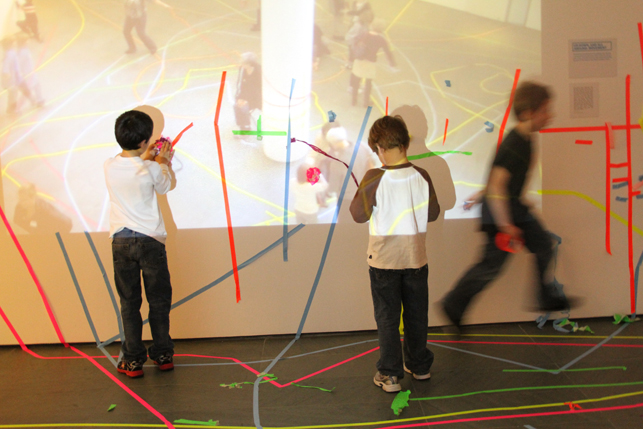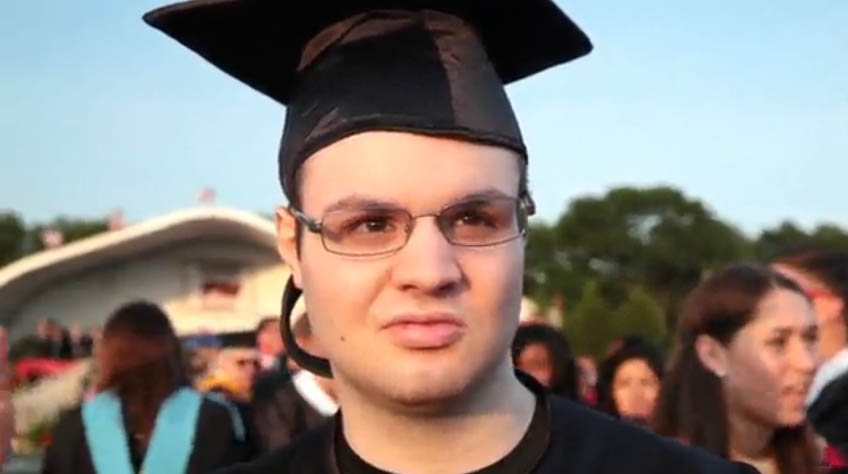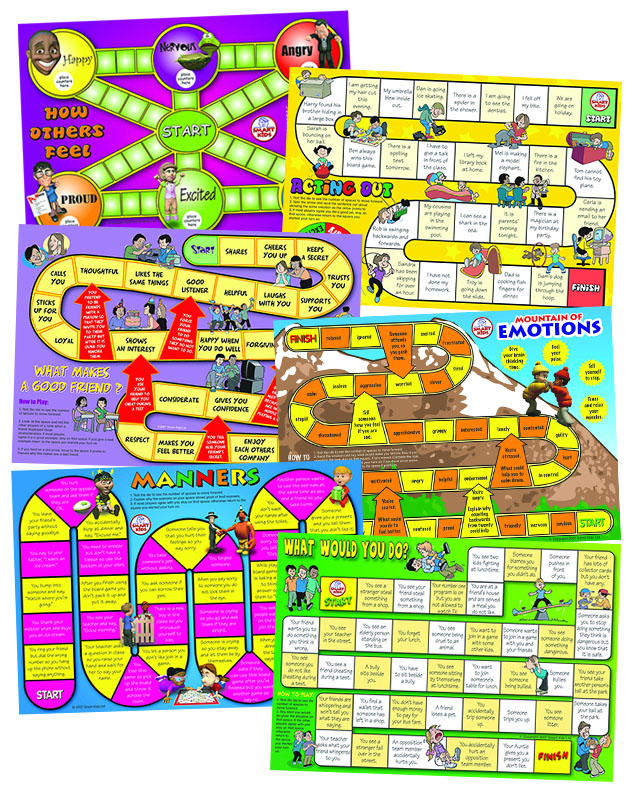This week, our exclusive interview series with BCBA Sam Blanco features the renowned Gary Mayerson, JD, founder of Mayerson & Associates, the very first civil rights law firm in the nation dedicated to representing individuals with autism and related developmental disorders. In this interview, he reveals valuable advice for parents and caregivers on how to find and obtain the services their children are entitled to.
Getting the Services Your Child with Autism is Legally Entitled To
with Gary S. Mayerson, JD
SAM BLANCO: Can you address any common misconceptions related to IDEA or LRE?
GARY MAYERSON: The federal IDEA statute is governed primarily by what is “appropriate” for the student, as opposed to what is “best” or “optimal.” Unfortunately, the IDEA statute does not define the word “appropriate” and that confusion accounts for many of the conflicts that will arise between parents and school districts, who are obligated to provide a FAPE (a “free and appropriate public education”). On the other hand, LRE, otherwise known as “least restrictive environment,” is one of the few “maximizing” provisions in the IDEA statute. LRE is Congress’ mandate that students with disabilities be educated with their non-disabled peers to the “maximum extent appropriate,” even if doing so requires supplemental aids and services. The LRE mandate requires school districts to consider what is known as “the full continuum” and not rely upon “one size fits all” special education classrooms.
SB: What is the most important piece of advice you can give to parents as they begin the process of finding an appropriate school placement for their child?
GM: The best advice I could give parents who are just getting started is to seek out the best possible baseline of assessments and evaluations to tease out the strengths and challenges, identify and address any interfering behaviors, and hopefully get a good sense as to how their child learns, i.e., what kinds of programs are likely to be effective or not. Without the benefit of solid evaluations, the discussion at the IEP meeting will likely be relegated to “this is what the parents want.” When parents are able to provide quality evaluations, the discussion is elevated to “this is what professionals are recommending.” School districts are far more likely to take action based on the recommendation(s) of experts. Early intervention is always best. Accordingly, once evaluations and assessments are available to guide intervention, services should start ASAP. Parents of children diagnosed on the autism spectrum who are just getting started will find very useful information at www.autismspeaks.org. Autism Speaks offers an online “100 Days Kit” to help parents wade through the initial time frame following a diagnosis.
SB: Many parents struggle with the costs associated with autism. What advice do you have for them to alleviate some of the expenses?
GM: This is a thorny topic because even families with significant financial resources will struggle to pay for the daunting cost of effective programming where autism is the core disability. Today, most states (including New York) have enacted insurance reform, which means that many intervention services will be covered by private insurance, typically limited to an annual cap of approximately $40,000 or so. Parents should also consider obtaining home and community based services by filing for a “Medicaid waiver.” In addition to accessing insurance benefits and applying for a Medicaid waiver, families should register with early intervention (“birth to three”) and later, with their Committee on Preschool Education (3-5) and later, with their Committee on Special Education (5-21) to secure a public program. If, however, the public program is not appropriate or adequate, with timely advance notice, parents can file for a hearing to seek to obtain reimbursement or other funding for services and programming that is appropriate. Even short of a lawsuit, if parents are unhappy with the school district’s evaluation, they can request an “independent (private) evaluation” at the expense of the school district.
SB: Do you have recommendations for how parents keep track of records for legal purposes?
GM: Good record keeping is absolutely essential for parents. A great low tech, low cost method every parent should employ– keeping a $.99 notebook “log” of all your conversations with evaluators, school district personnel and providers. Everything important needs to be confirmed and documented in writing. This, however, does not mean sending a letter by certified mail. Faxes are just fine (but be sure to keep the fax transmittal confirmation), as are emails. Make sure to save every notice, letter and communication. For the IEP meeting, parents should either take good notes or, in situations where distrust has arisen, consider tape recording the meeting. Parents who observe schools that are being recommended by the school district also should record their observations, both good and bad.
SB: What resources do you recommend for parents to educate themselves about their legal rights?
GM: While there often is no substitute for seeking the assistance of an experienced attorney or other advocate, there actually are a number of good resources for parents to turn to in order to become better informed as to their child’s rights and entitlements. Parents, for example, will find useful information at www.wrightslaw.com and at www.mayerslaw.com. Our law firm invites parents to sign up for the firm’s quarterly informational newsletter. In addition, parents should carefully review the “parental rights” booklet that all school districts are required to provide in the context of the IEP process. Parents can also contact their local SEPTA or PTA. Finally, each state’s department of education will post, online, valuable information that parents can access free of charge, 24/7.
SB: Do you discuss estate planning for parents of children with special needs? When do you advise parents to begin making those plans?
GM: Parents of special needs children live with constant worry, knowing that they will not be able to live and protect their child forever. All parents–even those without any financial resources–should have a will that addresses estate planning issues, and the question of who will take over the parental role when the parent is no longer around to do so. Parents with financial resources, or who expect to come into money in the future, need to engage counsel to set up a “special needs trust” for their child—so as to allow the child to receive Medicaid and Social Security benefits without endangering the estate when such benefits are accessed. It is never too early to discuss estate planning issues, and too many parents overlook estate planning issues until it is too late. Parents also should timely commence guardianship proceedings well before the child reaches the age of majority (18 in most jurisdictions). Otherwise, a child who reaches the age of majority without a guardianship order may leave the jurisdiction and put themselves in danger with parents being left with little, if any, legal recourse. This is not to say, however, that obtaining guardianship is a given. Obtaining guardianship requires a showing, deemed acceptable to the court, that the child is incapable of making their own decisions.
SB: Can you describe legal considerations across the lifespan? For instance, what should the preschooler’s parents be considering as opposed to the teenager’s parent?
GM: The perspective and legal considerations when a child is a preschooler are different than when a child reaches his or her teens. While learning can and will continue into adulthood, most scientists and educators are in agreement that the same effort will produce greater learning, with a greater “rate of acquisition,” when the same child is younger. For this reason, judges and hearing officers are most comfortable “investing” significant public resources in the younger child. Because of the value of “early intervention,” parents need to obtain a diagnosis and classification as soon as possible. This means obtaining quality assessments that come with specific recommendations. Parents of children at the preschool age should thus timely receive the services and service levels that are being recommended by professionals. When the child enters his or her teens, that child still may require intensive services. However, as mandated by federal and state law, when a child is about to turn 16 (15 in New York), the IEP is supposed to shift into high gear with “transition” assessments, vocational training, and post-secondary outcomes. At all stages, parents should make sure that educators and service providers are promoting “generalization,” and that increased independence and self –sufficiency is the constant beacon on the horizon.
ABOUT GARY S. MAYERSON, JD

Gary Mayerson is a graduate of the Georgetown University Law Center and the S.I. Newhouse School of Public Communications at Syracuse University. In early 2000, Gary founded Mayerson & Associates as the very first civil rights law firm in the nation dedicated to representing individuals with autism and related developmental disorders.
Gary speaks regularly at national conferences and major universities and has testified before Congress on the subject of the federal Individuals with Disabilities Education Improvement Act (“IDEIA”). At the invitation of the United Nations, Gary spoke on the subject of facilitating inclusive education. Gary is well published in the field and is the author of How To Compromise With Your School District Without Compromising Your Child (DRL Books 2005), the “Legal Considerations” chapter appearing in the Second Edition of Dr. Donna Geffner’s book, Auditory Processing Disorders (2013), and the “Autism in the Courtroom” chapter appearing in the Fourth Edition of Dr. Fred R. Volkmar’s seminal treatise, Autism and Pervasive Developmental Disorders (2014).
Gary has been interviewed by the Today Show (NBC), Dan Rather (HDNet), Katie Couric, CNN, HLN, ABC, NPR, New York Magazine, the Wall Street Journal, Congressional Quarterly Researcher and the New York Times, among other media. In 2014, after being peer-nominated and vetted across 12 factors by an attorney led research team, Gary was named by Super Lawyers Magazine as one of the top attorneys in the New York metropolitan area.
In addition to the U.S. Supreme Court, Gary is admitted to the Second Circuit Court of Appeals, the Third Circuit Court of Appeals, the Fifth Circuit Court of Appeals, the Sixth Circuit Court of Appeals, the Seventh Circuit Court of Appeals, the Tenth Circuit Court of Appeals, and the Eleventh Circuit Court of Appeals.
Gary is responsible for more than sixty reported federal court decisions, including Deal v. Hamilton County, the very first autism case to ever reach the U.S. Supreme Court. Gary’s work also was instrumental in T.K. v. NYCDOE (bullying recognized as a “FAPE” deprivation), R.E. v. NYCDOE and C.F. v. NYCDOE (cases rejecting school district’s attempts to rely upon “impermissible retrospective evidence” at trial), T.M. v. Cornwall (least restrictive environment mandate as applied to ESY), L.B. v. Nebo School District (pertaining to “supported inclusion” and Congress’ “least restrictive environment” mandate), V.S. v. NYCDOE (parents have a procedural right to evaluate the school assignment) and Starego v. NJSIAA, a federal court settlement affording Anthony Starego, a 19-year-old high school placekicker with autism, an unprecedented fifth season of interscholastic competition (incredibly, that additional season had a storybook ending, with Anthony and his team going on to win the 2013 State Championship 26-15 after Anthony contributed points from two successful field goals!).
Gary has served on the national board of Autism Speaks since its inception in 2005 and founded its Federal Legal Appeals Project, a pro bono initiative at the federal level. In addition, Gary serves on the Boards of JobPath, a not-for-profit based in Manhattan that is dedicated to securing and supporting meaningful employment opportunities for adults with autism, and ALUT, Israel’s largest autism not-for-profit. Gary also serves on the Professional Advisory Board of the New England Center for Children (NECC), a residential school for students with autism located in Southborough, Massachusetts.
Gary testified before the New York City Council in support of “Avonte’s Law,” a safety enhancement measure introduced by Councilmember Rob Cornegy that, once fully implemented, will provide an additional layer of protection for students with autism who have a propensity to wander. Most recently, Gary and attorneys Maria McGinley and Jacqueline DeVore worked behind the scenes to help secure a conditional pardon from the Governor of Virginia for “Neli” Latson, a young man with autism, previously placed in solitary confinement, who is now receiving the therapeutic treatment that he needs.
 The Museum of Natural History’s ‘Discovery Squad’ meets on select Saturdays for children ages 5- 14, accompanied by an adult, before the museum is open to the general public. Specially trained museum guides will lead a 40 minute tour through the North American Hall of Mammals (ages 5-8) or on an adventure through the Koch Dinosaur Wing.
The Museum of Natural History’s ‘Discovery Squad’ meets on select Saturdays for children ages 5- 14, accompanied by an adult, before the museum is open to the general public. Specially trained museum guides will lead a 40 minute tour through the North American Hall of Mammals (ages 5-8) or on an adventure through the Koch Dinosaur Wing. Each month the Museum of Modern Art’s program ‘Create Ability’ follows a different theme through the galleries to explore the art work and workshops to create in the classroom. These workshops are intended for individuals with developmental or learning disabilities ages 5-18+ and are free with pre-registration!
Each month the Museum of Modern Art’s program ‘Create Ability’ follows a different theme through the galleries to explore the art work and workshops to create in the classroom. These workshops are intended for individuals with developmental or learning disabilities ages 5-18+ and are free with pre-registration!


 NBC’s Dateline recently aired “On the Brink,” a 3-year chronicle of two New York-based young adults with autism and the emotional journeys their families have endured. As they transition from graduation to adulthood, they make a leap towards the unexpected future.
NBC’s Dateline recently aired “On the Brink,” a 3-year chronicle of two New York-based young adults with autism and the emotional journeys their families have endured. As they transition from graduation to adulthood, they make a leap towards the unexpected future. This report puts a spotlight on autism’s “aging out” crisis. “On the Brink” presents a deeper look at the lives of young adults with autism and the measures parents must take to provide their children with specialized services and a better future when they turn 21. Both families featured in this episode fight to help their children and revolutionize the way autism is perceived in the U.S.
This report puts a spotlight on autism’s “aging out” crisis. “On the Brink” presents a deeper look at the lives of young adults with autism and the measures parents must take to provide their children with specialized services and a better future when they turn 21. Both families featured in this episode fight to help their children and revolutionize the way autism is perceived in the U.S.


 Mary Jane Weiss, Ph.D., BCBA-D, speaks to the complexities of being an ethical behavior analyst and the complex skill set required. In this workshop Dr. Weiss will review the Guidelines for Responsible Conduct, and will identify core themes and responsibilities. She will also review several sample scenarios, and discuss the decision making tree that would assist a behavior analyst in identifying the best and most ethical course of action. This workshop is geared toward professional with BCBA Type II CEU credits available.
Mary Jane Weiss, Ph.D., BCBA-D, speaks to the complexities of being an ethical behavior analyst and the complex skill set required. In this workshop Dr. Weiss will review the Guidelines for Responsible Conduct, and will identify core themes and responsibilities. She will also review several sample scenarios, and discuss the decision making tree that would assist a behavior analyst in identifying the best and most ethical course of action. This workshop is geared toward professional with BCBA Type II CEU credits available.
